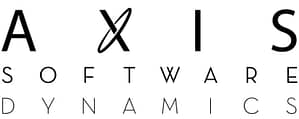Established by Microsoft in 2002, the open-source framework of .NET today is widely used in the tech industry. Everyone will have heard of it or seen it mentioned because it has now become a very diverse framework.
It used to predominantly be Windows almost exclusively, but now can be used to develop a wide range of applications for every platform and operating system. The .NET framework provides a general-purpose platform for development and helps with improving custom business apps with many benefits.
Core Features for Business Apps
There are a few attractive features that are critical aspects for robust business apps that are deployed on a large scale. These features have been continually developed and improved. Microsoft has tried to assess the numerous issues of the usual business app development process, and created a framework which streamlines development and deployment.
Unnecessary Data and Bundling
Bundling was added in Version 4.5, reducing the size and scale of files and scripts in the software. This is great for compacting software and packages, .NET has the ability to optimize structure and give assistance to bundling and modification of files for easier deployment.
Memory Management
The .NET framework has exceptional memory management built into its features. The framework can check resources and efficiently examine which are no longer being utilized and are out of scope.
It can then handle them via the “garbage collector”. It is named this as it’s a program which will collect and dispose of unnecessary segments of memory to free it up. The garbage collector will run at set intervals, usually to free up resources which are no longer in use and dispose of them.
Safety and Security
The security of applications is increased as internet software is all developed by ASP.NET. This has Windows confirmation and configuration, these are both advanced features that provide immense safety to aspects like role-based security and the actual accessibility to the code.
Language Interoperability
One very attractive feature of .NET is that it is language-independent. It supports a huge range of languages like C#, C++, VB, and even old-school languages like COBOL. Initially, this isn’t very impressive but .NET language compilers have an intermediate code called Common Intermediate Language (CIL).
This is compiled at runtime and exposes functions from one language and makes them accessible to other languages. Meaning developers can work in any language they desire as long as it targets the .NET framework.
Portability
Originally as mentioned, it was almost Windows exclusive. Now .NET runs across all major platforms like Linux, OSX, MacOS and Apache. This was from a 2016 improvement where a complete overhaul of the .NET Core was done.
MVC
This is more ASP.NET, but worth mentioning. MVC is a design pattern that decouples the UI (view) from the data (model), and the application logic. This keeps the different aspects of the full software separated, which then makes it easier to work on specific parts. Actions are only performed via controllers that are responsible for performing actions and retrieving the data.
There are many more benefits to utilizing .NET for your next project. If you have any questions about it or want to know how you can capitalize on it for your business applications, contact us at Axis Software Dynamics today!






